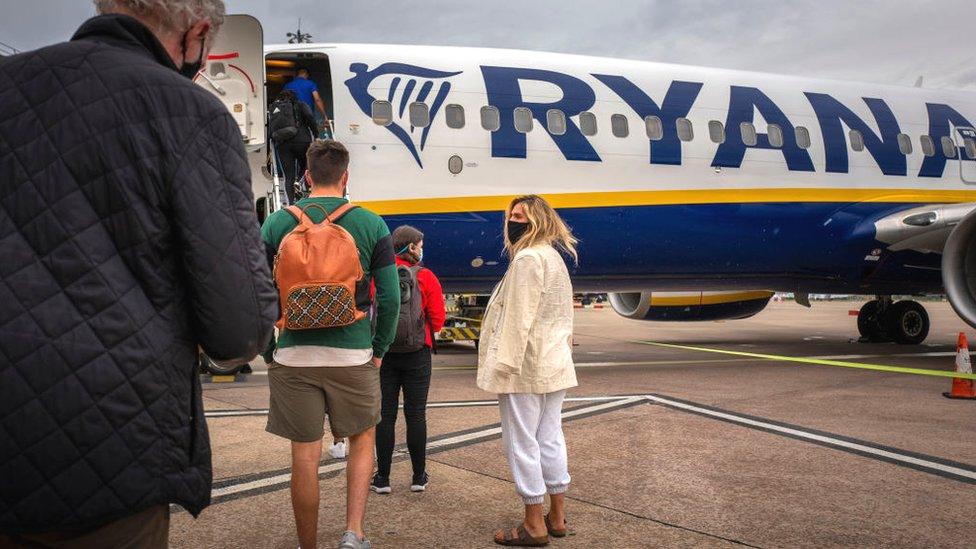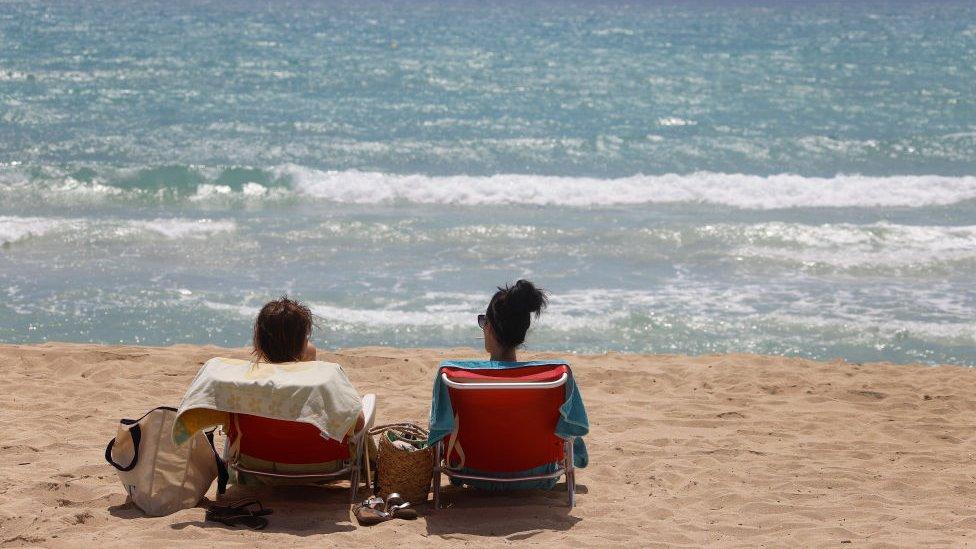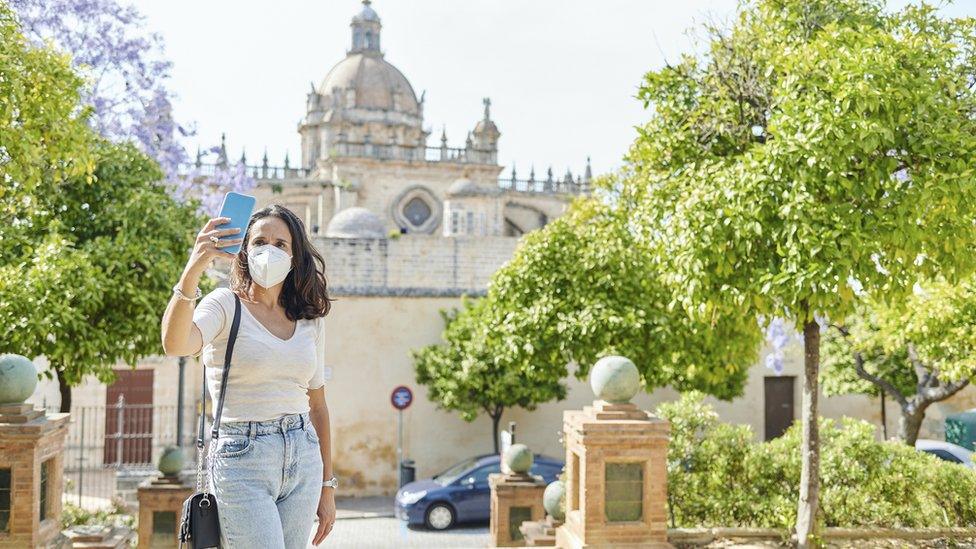Ryanair and Manchester Airports Group take action over travel lists
- Published
- comments

Ryanair and the owner of Manchester, London Stansted and East Midlands airports have launched a legal challenge against the government over the travel traffic light system.
They are calling for more transparency about how the government decides which countries qualify for the green list of safe places to visit amid the pandemic.
EasyJet, Tui and IAG, the owner of British Airways, have backed the case.
Ministers say the system "cautiously manages the risk of new variants".
The traffic light system, external rates countries green, amber or red based on their Covid risk.
Travellers to countries rated green will not need to isolate on their return, but they will need to take a Covid test before and after their trip.
Arrivals from amber countries will need to quarantine, while red-list countries have the strictest rules, with only UK or Irish nationals, or UK residents, allowed to return - and they must pay for a 10-day stay in a government quarantine hotel.
The challenge by Ryanair and Manchester Airports Group (MAG) has been put together after huge frustration within the travel industry at the inclusion of Portugal on the green list in mid-May and then its sudden removal a few weeks later.
IAG, the owner of British Airways, has told the BBC it intends to join the case as an "interested party".
One airline in support said: "We have been asking for more transparency for some time now and so we share the serious concerns being raised by MAG concerning the lack of transparency around government decision making."
'Make it up as they go along'
On top of this, the travel industry believes the Balearic and Greek Islands should have been included on the green list of countries last month when health data was analysed.
In a separate development, the bosses of Jet2 and EasyJet Holidays have told the BBC they do not understand why low infection destinations like Mallorca were left off the green list in the last review and questioned how government decisions are made.
The boss of Ryanair, Michael O'Leary, wants Boris Johnson to explain the scientific basis behind the system which he says the government "seems to make up" as it goes along.
Further signatories to the challenge are set to be revealed on Thursday. They are demanding a fast response as the crucial summer season edges closer.
The government said at the time that moving Portugal from the green to amber list was necessary because of an increase in infection rates in the country, and the emergence of the "Nepal variant", a mutation of the Delta version of the virus first detected in India. There were concerns that vaccines would not work as well on this particular mutation.
The move meant that some British holidaymakers had to cut short their holidays and dash back from Portugal on extra flights put on by airlines before the country came off the green travel list in early June.
Travellers the BBC spoke to said it cost them hundreds of pounds to book new flights to get home before the deadline.
Travel bosses are concerned the damage of these sudden reversals will continue to erode the confidence of the British travelling public.
Coronavirus: Ryanair boss criticises 'unnecessary disruption' over Portugal travel
They maintain there is huge pent-up demand to travel abroad this summer, following three coronavirus lockdowns and huge numbers of cancelled or postponed holidays.
But epidemiologists worry that mass travel before more people are fully vaccinated, both in the UK and at holiday destinations, will allow the virus to spread more rapidly.
And if Covid cases spiral suddenly on holiday islands, it is not clear if healthcare systems there are in a position to manage their care.
A government spokesperson said: "We recognise this is a challenging period for the sector, as we seek to balance the timely reopening of international travel while safeguarding public health and protecting the vaccine roll-out."
"We have provided £7bn to help support for the industry during the pandemic."
The spokesperson added that the government could not comment on legal proceedings.

WHY HAS TWITTER BEEN BANNED IN NIGERIA?: If You Don't Know investigates
"MY LIFE WAS ON PAUSE BEHIND THE SCENES": Mark Feehily opens up about coming out to the world

- Published17 June 2021

- Published11 February 2022

- Published8 June 2021
